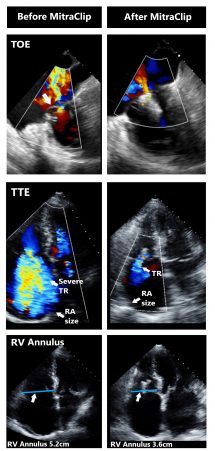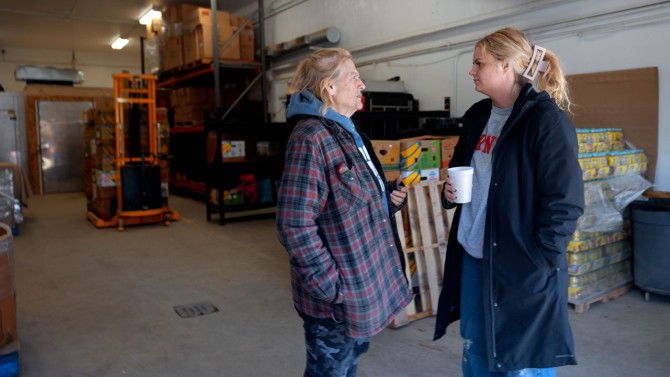A Macquarie University Hospital interventional cardiologist has pioneered an innovative heart procedure that is helping patients avoid heart failure and death.

Macquarie University Hospital’s Professor Martin Ng has successfully performed a minimally invasive repair of the tricuspid valve to address tricuspid regurgitation, a condition where the damaged valve leads to the backflow of blood from the right ventricle to the right atrium.
Professor Ng successfully conducted the procedure under the guidance of visiting German cardiologist Professor Stephan von Bardeleben, Head of the Centre of Structural Heart Disease Interventions and the Heart Valve Centre in Mainz, Germany.
“This heart condition is going untreated worldwide and the condition can be debilitating and lead to heart failure and death,” Professor Ng says.
“Not only is there is a general lack of understanding of this disease, but for elderly and high-risk patients, the traditional open-heart method is too dangerous.
“This minimally invasive approach – rarely performed anywhere in the world – is beneficial for high-risk patients for whom open heart surgery is too risky. With the general lack of expertise, technology and understanding of this application, we are delighted to have brought it to Australia for the first time.
“We are especially privileged to have had Professor Bardeleben travel to Australia to oversee this first procedure. He is the pioneer in the field and there is no better person to have had alongside us as we performed our first case,” Professor Ng says.
John Lakos is the first patient in the Southern Hemisphere to undergo the tricuspid valve repair. Since 1986, when John was diagnosed with aortic valve disease at the age of 39, he has undergone several valve procedures – the first being a procedure through open heart surgery to replace the faulty aortic valve with a mechanical one.
Earlier this year, his cardiologists noticed a leaky mitral and severely leaky tricuspid valve.
“I felt breathless and found it hard to even climb a flight of stairs,” Mr Lakos says.
“Surgeons were reluctant to operate with open heart because I had had so many open-heart procedures already.
“The conventional solution was for Professor Ng to perform percutaneous MitraClipping of the mitral valve with the objective of releasing pressure on the tricuspid valve. If that didn’t work, then we had no choice but open-heart surgery to implant an artificial tricuspid valve. The hope was that the repair of the mitral valve would improve the functioning of the severely leaking tricuspid valve.
“However, when I saw Professor Ng to organise the proposed MitraClip, he presented me with an unexpected option. A world-leading German cardiologist was coming to Australia to supervise a tricuspid clip – never before performed in the Southern Hemisphere. Professor Ng also advised that I had been selected because I was a suitable candidate for the procedure. Accordingly, I became the first patient in the Southern Hemisphere to undergo this procedure,” Mr Lakos says.
Professor Ng said that John’s condition has dramatically improved. He no longer gets short of breath conducting his daily activities and he has returned to his regular swimming routine, something he has done for years as daily exercise.
Macquarie University Hospital has been a pioneer in keyhole cardiology surgery. It is a leading centre in Australia for TAVI, performing a high volume of this game-changing surgery and obtaining patient outcomes in line with international registries.
“Macquarie University Hospital is not just performing well-established procedures,” says Professor Ng, who is one of Australia’s leading interventional cardiologists.
“We pride ourselves on trying what hasn’t been done before and this latest surgery is an example.”


/who-office-at-the-united-nations-(wun)/un-sc-dg.tmb-768v.jpg?sfvrsn=6720f3fc_1)





